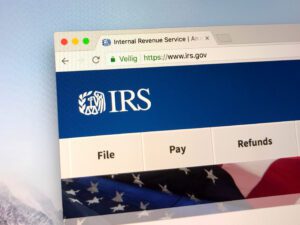Working your way through the US tax code is daunting in itself. And for US expats living in the UK, it’s even more complex. Preston, UK based retired tax specialist Arif Patel gives his top tax tips for US expats
“The US is one of just two countries in the world that demand their citizens and Green Card holders pay tax. It doesn’t matter how long you’ve lived away from the US, or which country you live in. You must file US taxes in order to avoid potentially heavy penalties,” says Arif Patel.
Seven tax tips for US expats
As a US expat you are liable to file for and pay US tax
Green Card holders and US citizens must file US taxes. The only way to lose this responsibility is to ‘expatriate’, which essentially means forfeiting your Green Card or citizenship.
You must pay tax on your worldwide income:
Salary or wages from the US and other sources.
Dividends.
Rental income.
Interest.
The filing threshold differs depending on your status. If you’re self-employed, then the threshold is $400.
Be aware of filing dates for US expats- Arif Patel
The tax deadline for filing US taxes is 18 April every year. For US expats living outside of the country, there is an automatic extension until 15 June.
If you decide to move back to the US within a tax year, you could apply for specialist expat deductions. However, you would have to file by the 15 April deadline as you would now count as a resident in the US.
File the correct forms for any credits, exclusions or deductions – Arif Patel
There are various exclusions, credits and deductions in place to make sure you’re not charged twice for the same income.
These mean that most US expats will be able to offset income earned from overseas with one of the following:
Foreign Tax Credit (FTC) – You can use the FTC to eliminate or offset your liability to pay US taxes if your income is higher than the FEIE. You must file Form 1116 for FTC, which is a dollar-for-dollar credit on any tax you pay to another country. You could be eligible for both FTC and FEIE, if you also claim the child tax credit, the FTC will often get you more savings than the FTC.
Foreign Earned Income Exclusion (FEIE) – This is the most common way to reduce or completely eliminate your US taxes as an expat. Every year, the threshold is raised in line with inflation. For 2019, the maximum amount is $105,900, which means this amount of income earned overseas can be excluded from being taxed. This is not automatic, so you must first qualify, and then file using Form 2555 or Form 2555-EZ. To qualify you must pass either the physical presence test, or the bona fide residence test.
Foreign Housing Exclusion (FHE) – You might also be able to claim a deduction form gross income for housing, if your tax home is overseas and you qualify under the residence tests.
You must still file the tax return to prove that you are eligible for any of the above.
Keep careful records of travel – Arif Patel
If you choose to qualify by the physical presence test, then you must prove that you are physically in a foreign country for 330 full days out of a year. You must keep very clear and verifiable records of any travel time to and from the US. Keep proof of all dates of travel, as a calculation error could cost you.
You can file for an extension if you need more time- Arif Patel
If you moved overseas in the later stages of the year, then you’ll be concerned about whether you qualify for FEIE. However, you can mitigate this by applying for an extension allowing you to pass the required qualification test. If you know you will qualify in the near future, then it’s possible to apply for an extension until 15 October. Alternatively, you can file Form 2350 which will give you even longer.
Check whether you must file a Foreign Bank Account Report (FBAR) – Arif Patel
The IRS introduced this to crack down on tax cheats. If the balance of all your foreign bank accounts is more than $10,000 you must file a FBAR separate to your tax return.
You also might be required to file a Foreign Account Tax Compliance Act, which is also in place to stop US taxpayers stashing money offshore. The requirements for both are similar, but they are separate. You may have to fill one, or both or neither.
Income earned in the US isn’t automatically excluded – Arif Patel
Any income you earn on US soil as an expat is not excluded from taxation under FEIE. But, if you are paying taxes on that income to a different country, you could then use FTC to offset the US tax.
“To ensure you’re up-to-date, compliant and claiming all the exclusions you can, it’s always a good plan to engage a tax specialist,” Says Arif Patel
About Arif Patel
Arif Patel is a retired teacher and tax expert based in Preston, UK
Read more:
Top tax tips for US expats from specialist advisor Arif Patel























